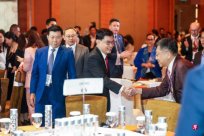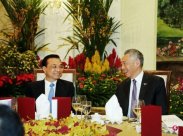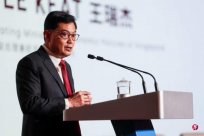(Beijing Comprehensive News), professional covering law and economy, is the first prime minister in China to have a doctorate degree in economics. Its economic development ideas have been summarized as "Likonomics".
Li Keqiang was appointed Prime Minister of the State Council in March 2013. At that time, China's economic growth slowed down, but in the past three months, the new government did not release clear signals of economic policy adjustment.In June of the same year, Huang Yiping, then chief economist of Barclays Capital, Barclays, proposed the term "Li Keqiang Economics".
Chinese Enterprise reported that Huang Yiping stated that he put forward this new word in the "Beijing Postcard" written to Barclays Capital Global Customers and briefly discussed his three major policy pillars: no large -scale stimulus policies, no large -scale stimulus policies, and no large -scale stimulus policies,,Moderate deleveraging control financial risks and comprehensively promote structural reform.
Barclays reported in a research report that Li Keqiang's economics was decelerating, deleting leverage, and improving the quality of growth. This is exactly what China needs, because the Chinese economy urgently needs to return to the track of sustainable growth.
In addition, Li Keqiang's economic ideas that are well known abroad are "Li Keqiang Index".
When Li Keqiang served as the secretary of the Liaoning Provincial Party Committee of the Communist Party of China in 2007, he told the visit to the United States Ambassador to China in China.Drop some of the water in the statistics.According to these three indicators, British economists launched the "Keqiang Index" in 2010 to evaluate the growth of China's GDP (GDP).
An article reposted by Observer Network in 2013 stated that these three indicators involved the specific performance accounting of grids, railways, and banks, and did not interfere with the GDP worship of the local government., So it can reflect the economic trend well.




